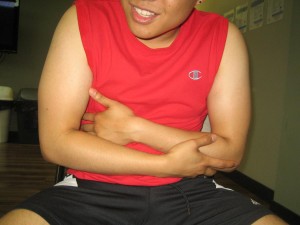If an individual develops skin rashes after eating any of the nightshade vegetables such as peppers, potatoes or tomatoes, he/she is likely to have an allergy to these vegetables. Allergies to nightshade vegetables are considered uncommon. After consuming nightshade vegetables, it is recommended that the individual will note down any adverse side effects he/she experiences and schedule an appointment with a doctor. The usual skin issues linked with nightshade vegetables include eczema, contact dermatitis and hives. Being prepared to handle an allergic reaction is essential. With this in mind, you can register for first aid training today.
Allergic reaction
During an allergic reaction, the immune system breaks down and mistakenly identifies common foods or non-toxic substances as a threat to the body. After being exposed or eating nightshade vegetables, the body overreacts to the substances in the vegetables and starts to develop antibodies to fight off the allergen.
The presence of the antibodies can cause other chemical reactions that result to irritation and inflammation in the soft tissues. Histamine is the chemical produced by the soft tissues to protect the body from harmful substances. It can cause irritation and inflammation once released all over the body.
What are the types of skin reactions?
There are different skin reactions that can accompany an allergy to nightshade vegetables. Contact dermatitis is generalized itchiness and inflammation due to direct exposure to nightshade vegetables. Right after being exposed to the vegetable, the skin will become blotchy, irritated and inflamed as a response to the elevated histamine in the skin.

Hives can develop in different sizes and shapes. They have flattened tops with distinct edges. With this type of rash, it can appear, vanish and reappear for no obvious reason. Hives are usually safe unless they form in the throat or ear. In case an individual has eczema, an allergic response to nightshade vegetables can result to a flare-up.
Considerations to bear in mind
In case a food allergy is responsible for causing the skin rash, the individual can suffer from other symptoms as well. These symptoms typically include digestive issues such as bloating, vomiting, nausea, gas, diarrhea and abdominal pain. Some can experience coughing, wheezing, shortness of breath and tightness of the chest. Runny nose, nasal congestion, eye irritation and sneezing can also occur from an allergic response to the nightshade vegetables.
Treatment for the skin rashes
It is recommended to utilize topical steroid creams to reduce the skin rashes that develop right after contact with the nightshade vegetables. Hydrocortisone can be applied for minor allergic skin issues or consult a doctor so prescription corticosteroids can be given for severe cases.
An oral antihistamine is given to relieve the usual allergy symptoms and skin rashes that might develop during an allergic reaction. Antihistamines such as diphenhydramine are stronger and work at a quicker pace than the new options in the market.
